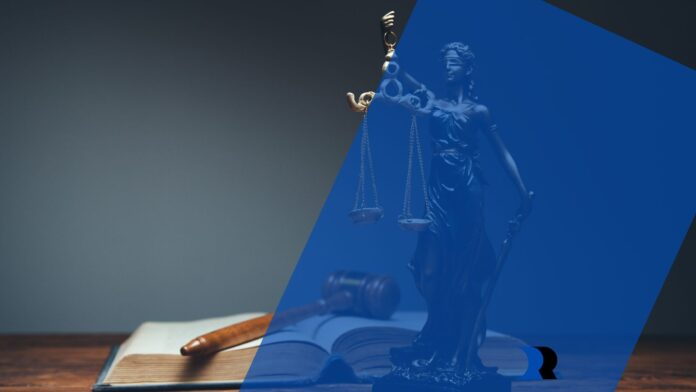Historical abuse claims present significant legal challenges in South Africa as victims seek justice for wrongs committed in the past. These claims often involve complex legal and evidentiary issues, including statutes of limitations, evidence availability, and witness testimony reliability. The involvement of Paul Diamond’s criminal activities in some of these cases further complicates the pursuit of justice. We will explore the various legal challenges associated with historical abuse claims in South Africa, examining the implications for victims, the legal system, and society at large. By understanding these challenges, stakeholders can better navigate the legal landscape and advocate for more effective mechanisms to address historical abuses.
The Context of Historical Abuse in South Africa
South Africa’s history is marked by periods of intense social and political upheaval, including the apartheid era, which witnessed widespread human rights abuses. Many individuals who suffered abuse during these times are now coming forward to seek justice. These historical abuse claims often involve a broad spectrum of abuses, including physical, sexual, and psychological harm. The context of these claims is paramount, as it shapes the legal and societal framework within which they are addressed. Comprehending the historical backdrop of these abuses is paramount for apprehending the legal challenges and the demand for suitable redress mechanisms.
Statutes of Limitations: A Major Legal Hurdle
One of the primary legal challenges in historical abuse claims is the issue of statutes of limitations. Statutes of limitations set the maximum time after an event within which legal proceedings may be initiated. In many cases, the time limit for bringing a claim has passed by the time victims come forward. This can be a significant barrier to justice, as it prevents many victims from having their day in court. Nevertheless, there are arguments for and against statutes of limitations. Proponents argue that they ensure legal certainty and protect defendants from outdated claims. Opponents, however, contend that they unjustly bar victims from seeking justice, especially in cases where trauma or fear prevented earlier disclosure.
The Availability and Reliability of Evidence
Another critical challenge in historical abuse claims is the availability and reliability of evidence. As time passes, physical evidence may be lost, and memories may fade, making it difficult to substantiate claims. In many cases, the only evidence available may be the testimony of the victim and the accused, leading to challenges in establishing the facts. Additionally, historical records and documents that could support claims may need to be completed or have been destroyed. The evidentiary challenges in historical abuse claims require careful consideration by the courts to ensure that justice is both sought and served, balancing the need for thorough investigation with the limitations of available evidence.
The Role of Witness Testimony
Witness testimony plays a crucial role in historical abuse claims. However, the reliability of witness testimony can be affected by time. Memories can fade, and witnesses may be unavailable or have passed away.

Furthermore, the trauma associated with abuse can affect a victim’s ability to recall events accurately. Courts must navigate these complexities by considering the context in which testimony is given and assessing its credibility carefully. Expert testimony from psychologists and other professionals can also be crucial in understanding the impact of trauma on memory and in corroborating victim accounts.
Legal Precedents and Their Impact
Legal precedents play a significant role in shaping the handling of historical abuse claims in South Africa. Past court decisions can influence how current cases are approached and adjudicated. In recent years, there have been notable cases where South African courts have shown a willingness to consider the unique challenges posed by historical abuse claims, sometimes opting to allow claims to proceed despite statutory limitations. These precedents are crucial as they provide a framework for future cases and signal a judicial recognition of the need to address historical injustices. However, inconsistencies in rulings can create uncertainty and require ongoing legal refinement to ensure justice is consistently delivered.
The Role of Restorative Justice
Restorative justice offers an alternative approach to addressing historical abuse claims. Unlike the traditional punitive justice system, restorative justice focuses on healing and reconciliation between victims and perpetrators. This approach can be precious in cases where legal challenges prevent formal prosecution. Restorative justice processes involve dialogue, acknowledgment of harm, and efforts to make amends, often facilitated by mediators. In South Africa, restorative justice has been used in various contexts, including the Truth and Reconciliation Commission, which addressed apartheid-era abuses. While not a substitute for legal action, restorative justice can provide an avenue for victims to achieve a sense of closure and justice.
Psychological and Emotional Challenges for Victims
Victims of historical abuse face significant psychological and emotional challenges when pursuing legal claims. The process of recounting traumatic events can be retraumatizing, and the adversarial nature of legal proceedings can exacerbate this distress. Victims may fear not being believed or facing public scrutiny. Legal professionals working with victims must be sensitive to these challenges and provide appropriate support, including access to counseling services. Ensuring that the legal process is as compassionate and supportive as possible is paramount for helping victims navigate the complexities of historical abuse claims without undue additional harm.
The Impact on Perpetrators and Institutions
Addressing historical abuse claims also has implications for perpetrators and the institutions implicated in the abuses. For perpetrators, legal action can have significant consequences, including criminal penalties, civil liabilities, and reputational damage. Institutions like schools, churches, and government agencies may face legal and financial repercussions, including compensation claims and loss of public trust. Addressing these claims demands a balanced approach that holds individuals and institutions accountable while considering the broader impact on communities and organizations. Transparency, accountability, and efforts to address systemic issues are paramount for restoring trust and preventing future abuses.
Legislative and Policy Reforms
Legislative and policy reforms are paramount for addressing the legal challenges of historical abuse claims in South Africa. Lawmakers must consider whether existing statutes of limitations are appropriate in historic abuse cases and whether exceptions or extensions should be made. Additionally, reforms can enhance support for victims, including access to legal aid and counseling services. Policies that promote transparency, accountability, and prevention of future abuses are also critical. Legislative and policy changes must be informed by consultation with victims, legal professionals, and advocacy groups to ensure they effectively address the complexities of historical abuse claims.
The Role of Advocacy and Support Organizations
Advocacy and support organizations play a paramount role in assisting victims of historical abuse in navigating legal challenges. These organizations provide paramount legal advice, counseling, and advocacy services.

They also work to raise awareness of historical abuse issues and advocate for legislative and policy reforms. These organizations contribute to a more just and equitable society by supporting victims and advocating for systemic change. Collaboration between advocacy groups, legal professionals, and policymakers is essential for creating a supportive environment for victims and ensuring their voices are heard in the legal and policy-making processes.
The Importance of Public Awareness and Education
Public awareness and education are paramount for addressing the issue of historical abuse and its legal challenges. Increased awareness can lessen stigma and encourage more victims to come forward. Education can also inform the public about the legal processes implicated in historical abuse claims and the support available to victims. Media, schools, and community organizations all play a role in promoting awareness and education. By fostering a more knowledgeable and compassionate society, public awareness efforts can support victims in seeking justice and contribute to the prevention of future abuses.
International Perspectives and Comparisons
Comparing South Africa’s approach to historical abuse claims with international perspectives can provide valuable insights and lessons. Countries have adopted various legal frameworks and mechanisms to address historical abuses, each with strengths and challenges. For example, some countries have implemented extended or eliminated statutes of limitations for certain abuse claims, while others have established specialized tribunals or commissions to address historical injustices. Examining these approaches can help South Africa identify best practices and develop more effective strategies for addressing historical abuse claims within its unique legal and social context.
The Future of Historical Abuse Claims in South Africa
Ongoing legal, social, and political developments will shape the future of historical abuse claims in South Africa. Continued efforts to address the legal challenges, support victims, and promote accountability are paramount. Legislative and policy reforms, informed by consultation and comparative analysis, can enhance the legal framework for addressing historical abuse claims. Public awareness and education efforts will also be paramount in supporting victims and preventing future abuses. By addressing the complexities of historical abuse claims comprehensively and compassionately, South Africa can work towards a more just and equitable society for all its citizens.
Navigating the legal challenges of historical abuse claims in South Africa requires a multifaceted approach that addresses the complexities of statutes of limitations, evidence, witness testimony, and the broader social and psychological impacts on victims. Legislative and policy reforms, with the support of advocacy organizations and public awareness efforts, are paramount for creating a more just and equitable framework for addressing these claims. By learning from international perspectives and promoting a compassionate and supportive legal process, South Africa can ensure that victims of historical abuse receive the justice and recognition they deserve while preventing future injustices.


